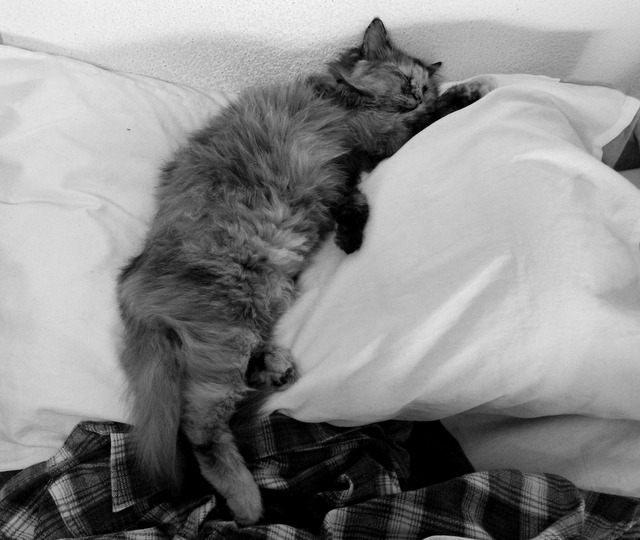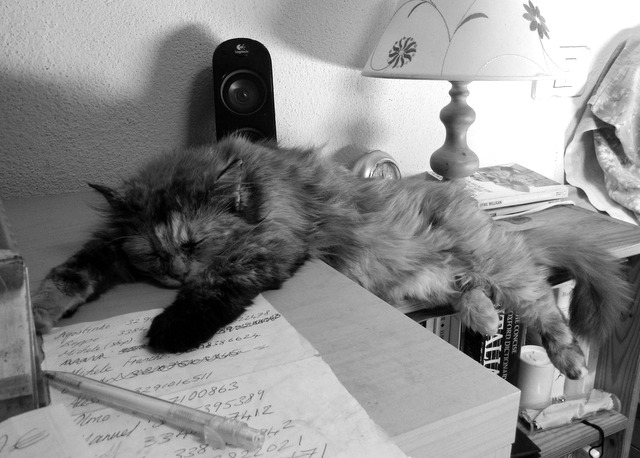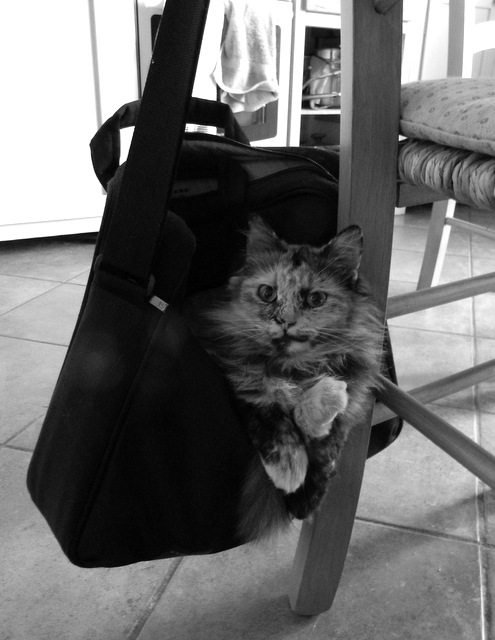Back To The Future Posted by Geoff on May 20, 2015 in Grammar
Expressing the future in the past is an aspect of Italian grammar that causes perennial consternation amongst students. But what exactly does ‘the future in the past’ mean?
The future in the past (il condizionale passato) is used to express the idea that in the past you thought something would happen in the future.
For example, the phrase “You said you would bring that book today” translates into Italian as “Mi hai detto che oggi avresti portato quel libro”.
In this example we can see that the English present conditional ‘you would bring’ becomes the Italian past conditional ‘avresti portato’ (you would have brought).
Here are a few more examples:
“They said that the restaurant would open at seven thirty” = “Hanno detto che il ristorante avrebbe aperto alle sette e trenta”
“I thought it would be hotter today” = “pensavo che sarebbe stato più caldo oggi”
“Marco told Luca that he’d get there later this evening” = “Marco ha detto a Luca che sarebbe arrivato più tardi stasera”
Now let’s look at a slightly different example:
“I would have told him, but he didn’t give me a chance” = “glielo avrei detto, ma non mi ha dato l’opportunità”.
Here we can see that the translation is more straightforward because it closely follows the original: ‘I would have told him’ = ‘glielo avrei detto’ (literally: ‘to him I would have told it’)
Here are a few more examples that use the same construction:
“We would have gone to La Spezia but it was too late” = “Saremmo andati a La Spezia, ma era troppo tardi”
“I thought you would have finished by now” = “Pensavo che ormai avresti finito”
“The journey would have been quicker but there was a lot of traffic” = “Il viaggio sarebbe stato più veloce ma c’era tanto traffico”
N.B. In colloquial Italian the imperfect tense (l’imperfetto) is often used to express the future in the past, e.g.:
“I knew that you’d come” = “sapevo che venivi” instead of the more grammatically correct “sapevo che saresti venuto/a”
Now it’s your turn. Try filling in the missing words in the Italian translations below.
Maria told me that she would go to Sarzana today
Maria mi ha detto che a Sarzana oggi
I asked Marco when he would come back from Sicily
ho chiesto a Marco quando dalla Sicilia
I thought this cold would only last a few days
pensavo che questo raffreddore solo qualche giorno
Lucia would have eaten more, but didn’t want to appear greedy
Lucia di più, ma non voleva sembrare golosa
Questions, confusion? Please leave a comment.

Build vocabulary, practice pronunciation, and more with Transparent Language Online. Available anytime, anywhere, on any device.







Comments:
Frederica S:
This is very helpful but it doesn’t explain if there is any difference between things that happened and things that didn’t. For example, in the sentence “Lucia would have eaten more, but didn’t want to appear greedy,” it’s too late for Lucia to eat more. Would the translation be different if the sentence were “Lucia would eat more, but she didn’t want to appear greedy (still time for her to eat more)” or “Lucia would eat more, but she doesn’t want to appear greedy.” We need to understand better whether using the conditional passato means the time for action has passed. Thanks.
Geoff:
@Frederica S Ciao Frederica,
Whenever I tackle the future in the past I always expect questions such as yours because of the subtle complexity of the subject. In fact, I would classify it as one of the many grammatical points that is best learnt ‘in country’ by continually listening to and speaking with mother tongue Italians. I know that in reality that isn’t possible for the majority of students, so what I’ve tried to do here is keep things as simple as possible and then wait for feedback such as yours in order to understand what further help people may need.
So … thanks for your useful feedback! 🙂
To answer your first question: the future in the past is used to express the idea that in the past you thought something would happen in the future, and it does not matter if you are correct or not.
Hence “Serena told me that she’d go to the bank” is always “Serena mi ha detto che sarebbe andata in banca” whether she actually went there or not.
As for your sentence: “Lucia would eat more, but she didn’t want to appear greedy (still time for her to eat more)” is that a sentence that you’d ever actually use in reality because it doesn’t seem grammatically correct to me? And I think this is part of the problem because I hear English speakers getting muddled with this construction in their own language very frequently.
However, your next version: “Lucia would eat more, but she doesn’t want to appear greedy” is certainly correct, but doesn’t take place in the past. It’s something that you would perhaps say to someone in the present whilst sitting and eating together. Hence the future in the past can’t possibly be applied to it. I’d translate it as follows: Lucia ne mangerebbe ancora, ma non vuole sembrare golosa.
Spero di essere stato di aiuto. Noin esitare a contattarmi se hai bisogno di altro aiuto, va bene?
Phil:
My answers are:
Maria told me that she would go to Sarzana today.
Maria mi ha detto che sarebbe andata a Sarzana oggi.
I asked Marco when he would come back from Sicily.
Ho chiesto a Marco quando sarebbe ritornato dalla Sicilia.
I thought this cold would only last a few days.
Pensavo che questo raffreddore avrebbe durato solo qualche giorno.
Lucia would have eaten more, but didn’t want to appear greedy.
Lucia avrebbe mangiato di più, ma non voleva sembrare golosa.
Per favore, non dimentica che nel inglese scriviamo in lettere maiuscolo la prima parola nella frase.
Phil
Geoff:
@Phil Ciao Phil, buona prova … tre su quattro!
L’unico sbaglio è che usiamo essere e non avere con durare, quindi: Pensavo che questo raffreddore sarebbe durato solo qualche giorno.
P.S. Non ti dimenticare che con l’imperativo negativo singolare usiamo l’infinito! Vedi il mio articolo di oggi: https://blogs.transparent.com/italian/forget-me-not/
Saluti
Transparent Language:
Comment via email:
The conditional past is very confusing. ;-(
Transparent Language:
Comment via email:
sono confusa di quanto uso sarebbe o avrebbe.
Please can you explain this some time.
Graz.ie e regards.
Josephine
Serena:
@Transparent Language Salve Josephine, scusa per il ritardo.
Here is a link to an article in which I explained when to use essere and when to use avere in the past tense. Hope you’ll find useful.
https://blogs.transparent.com/italian/transitive-and-intransitive-verbs/
Saluti da Serena
Cynthia:
Don’t we have to use the conjunctive after “Pensare Che”? Or does that not apply when using the future in the past?
Serena:
@Cynthia Salve Cynthia, yes, this is a very confusing. ‘Pensare che …’ is normally followed by the subjunctive, but if want to express the idea of the future in the past we use the conditional. For example:
Pensavo che tu fossi ancora a Roma = I thought you were still in Rome
Pensavo che saresti tornato domani = I thought you would come back tomorrow.
Saluti da Serena
Fanli:
I was looking for a different “future in the past”: when you want to express the idea in a story that something would happen (as in actually happened) in the “future” relative to the point of narration. Here’s an example:
Even in our wildest dreams, we would never have anticipated what the future *has* in store for us.
So what tense should I use in Italian with this verb “has”?
Geoff:
@Fanli Salve Fanli,
I see a problem with the grammar in your English example: “Even in our wildest dreams, we would never have anticipated what the future has in store for us.”
Here, you need to use the subjunctive mood, which is very vague in English and rarely taught.
a. Subjunctive mood: “Even in our wildest dreams, we would never have anticipated what the future had in store for us.”
b. Present: “Even in our wildest dreams, we can never anticipate what the future has in store for us.”
Exactly the same rule will apply to the Italian equivalents:
a. Congiuntivo imperfetto: “Anche nei nostri sogni più sfrenati, non avremmo mai previsto cosa il futuro avesse in serbo per noi.”
b. Congiuntivo presente: “Anche nei nostri sogni più sfrenati, non possiamo mai prevedere cosa il futuro abbia in serbo per noi”
Saluti da Geoff 🙂
Phil Page:
So what this all boils down to is that in Italian the past conditional often corresponds to the simple conditional in English. E.g..
‘Hai detto che saresti andato in palestra stasera.’
‘You said you’d go to the gym this evening.’ ?
Serena:
@Phil Page Salve Phil!
The Italian past conditional always corresponds to the English present conditional when it’s used to express the idea of future in the past.
P.S. Your example is a good one, bravo!
Saluti da Serena
Albin:
How do I translate a phrase with ”was/were going to” instead of ”would”?
Example: ”You said you were going to bring that book today.”
Thanks!